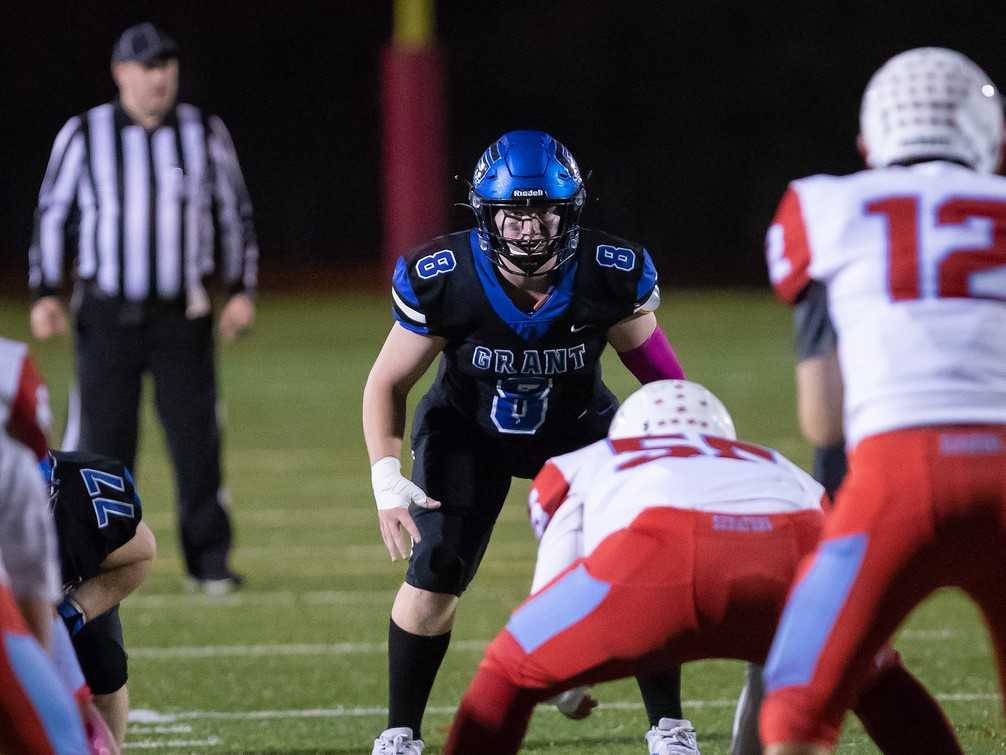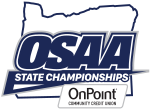
This summer was going to be crucial for Brennick Beck's football future.
Coming off a solid junior season, when he made first-team all-league at linebacker for Grant, the 5-foot-11, 220-pound Beck had moved to the brink of landing a college scholarship.
Leading up to this season, he planned to participate in camps at Utah State, Montana and Oregon State as well as in showcase events and combines.
“You can only see so much on film,” Beck said. “I'd like to show the coaches what I can do in person, just seeing me go through drills.”
Unfortunately for Beck, and many others in his position, COVID-19 has wiped out those opportunities. Players still have the 2020 season to make their mark, but even that appears to be in jeopardy.
“It's been frustrating thinking about not getting a chance to play my senior season, “ Beck said. “And it's been frustrating that I can't be with my team right now, getting better with them.”
The summer also has been a bust for West Linn running back Gavin Haines, who, like Beck, now is counting on a big senior season to open some doors to colleges.
“I was supposed to go to camps and everyone was supposed to see me in person, how I move and stuff,” said Haines, who has an offer from Georgetown. “A lot of the schools I'm talking to are basically saying, 'We want to see how the first couple games of your senior year go, and maybe we'll see what we decide, to offer you or not.
“I feel like I could be doing more. It's just kind of frustrating.”
It also has complicated things for Tigard quarterback Drew Carter, who is weighing multiple FBS scholarship offers.
“It's been harder to make decisions on a school because I haven't been able to go see any of them due to COVID,” Carter said. “I'm just trying to work through it, find different ways to see things.”
Players are doing their best to get ready for the season, but they are limited by state and district restrictions. Some teams are able to go through tightly regulated workouts together. Others, such as Grant, haven't been able to meet in person at all.
“You look at the people in southern Oregon and they've been doing stuff since June,” said Grant coach John Beck, Brennick's father. “And the same thing with central Oregon. They've definitely got an advantage of some sort.”
Brennick Beck wonders how those differences will impact the season, provided there is one.
“As a player, I know that if one of my teammates goes against someone who's been working out since June and they didn't get to work out until the end of July, or even later, that could be a pretty big difference,” he said.
In a way, John Beck said, the shutdown has turned back the clock for players, especially for those without access to equipment or facilities.
“We're basically going back to the 1970s,” John Beck said. “We haven't been working out as a program since March. So this is no different than way back when, when I played in high school.
“In my opinion, I don't see the quality of football being what it has been. People go, 'Oh, it's only been so many months.' But when you're starting months and months behind, it's not as good as if you had those opportunities.”
Different parts of Oregon are reopening at different rates. Much of the state is in Phase 2 and Multnomah, Washington, Clackamas and Lincoln counties are paused on Phase 1.
Could it mean that some schools offer football and others don't?
“I think it's possible for football,” OSAA executive director Peter Weber said. “I certainly think it's possible in other sports.”
If teams are able to play, games without fans are a possibility.
“From my perspective, I don't care if we have fans,” Sherwood senior linebacker Bryan Cuthbertson said. “Playing is playing, and that's why you play football. For me, it's not as much about the fans, it's for the love of it. If we have the opportunity to play, no matter what it is, I'm all for it, just any way possible to get us out there on the field again.”
Haines said that playing without fans “would make the game a lot less exciting. Obviously, it's football, it's going to be fun, but I feel like a big part of high school football is having your best friends out there watching you and supporting you. I feel like for some people, it'll make it a little less competitive. I feel like a lot less people will want to play if there's not as many people going.”
Given the situation, playing in an empty stadium, or even having a shortened season, would be OK with Carter.
“At this point, anything would be fine,” Carter said. “I would be very grateful for that, thankful that we even get an opportunity to play.
“What I fear most is not playing at all. What I'm hoping is that we at least play. I'm trying to stay really positive. Me and my guys, we're all working out and having high hopes for the season.”
As athletes and their families seek clarity on the situation, time is ticking down on the start of the season. The OSAA executive board will have a series of meetings next week to discuss the matter, but it's unclear how much will be resolved.
“What we don't want to do is lock ourselves into making a decision by a certain date,” Weber said. “We'll come out with an update. I don't know if there will be any type of final decisions for fall or not. Certainly, by the end of July we should have a more definitive plan in place.”
Carter, who will be a fourth-year starter, wants to “go out with a bang" as a senior.
“I think this team is very special and we have a chance to make a run,” Carter said. “It would be devastating if we didn't get a chance to play.”
Cuthbertson said losing the season would be a “huge setback” for him and his teammates.
“I feel like a part of our city and the entire state would be missing,” Cuthbertson said. “I'm still praying for it. I have hope it'll be here.”











